Queered Science is a series of profiles meant to highlight queer science and tell you what you need to know about it, for your intellectual edification and so you don’t feel excluded from a major and predominantly heterosexist subset of academia and industry.
Header by Rory Midhani

The first profile on my list is Dr. Erin Cech, an assistant professor and researcher in sociology at Rice University. She is my new hero and could definitely be yours too, if —like me —your hero list involves academics and novel protagonists. Cech focuses on inequality in the sciences, and specifically the subtle ways in which women, Native Americans, and LGBT people are excluded through seemingly innocuous cultural processes. You should know her because she was the lead author on a ground-breaking study in 2011 on the experiences of LGB students in engineering departments. I interviewed her last week and frantically wrote down everything she said in order to share it with you; it’s very impressive. She just off-handedly spouted the quotes I have typed below, the kind of sentences that I take hours to formulate and perfect. Oh well, I guess that’s her job.
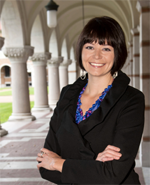
She has two bachelor’s degrees in electrical engineering and sociology, but had a lot of questions about the hegemonic culture that dominates science professions. She decided to go to graduate school in sociology in order to push the cultures of engineering and science towards more diversity and inclusivity from the outside.
“Sciences are perceived as an objective, neutral place. Who you are, and what you identify with, aren’t supposed to matter in whether people think you can do science — and yet it absolutely does. There is a consistent underrepresentation of minorities of every type, and it’s often difficult to understand why from the outset. I’m interested in how inequality is a really subtle process, and how we can reproduce inequalities without noticing that’s what’s going on.”
One of the most important parts of her research is what she calls the “self-expressive edge of sex segregation,” and you should know this, because she is talking about you and to you.
“The way we construct this idea of having a career or a major or a path and how it’s a way of expressing oneself, is such a dominant cultural narrative. It’s a very common frame through which people choose a major, that what you pick is somehow expressing who you are. And in this way it might mask subtle gendered processes: people’s interests come to be gendered, and that then becomes who they think they are. It feels legitimate and organic to them, and in many ways it is. But when people make decisions as a result of these expressive choices, the societal gendering of those choices comes into play. These choices are part personal choice, but a focus on choice alone hides, or cloaks, the very important presence of this lifelong gendering process under the guise of self-expression.”
In retrospect, I experienced this very thing in middle and high school. As a youngster, I was a super girly girl. My best friend and I dressed up as Anne of Green Gables and went wandering the countryside; my grandmother helped me sew water-nymph and fairy costumes that I wore to school on a regular basis in middle school. Yes, I know. And at some point, I think in eighth grade, I decided I was bad at math and didn’t like science. I wanted to be a writer, and writing and science didn’t overlap. QED, I couldn’t do science. For the rest of my public education, with that mentality, I put little to no effort into those classes and took my resulting mediocre grades as proof that I simply wasn’t cut out for it.
It was only in college, with a very different mindset, that I turned this totally around. Through a series of unrelated events, I realized I loved glaciers and wanted to study the physics of their behavior, and this – obviously – required math. So I started slowly but worked hard, remediated some of the bad habits and misinformation I’d learned in high school, and — guess what? Now I fucking love science, and I get paid to do it. It just took a slight tilt in my personal identity, and the realization that I could be creative, artistic, frilly and girly — and science smart.
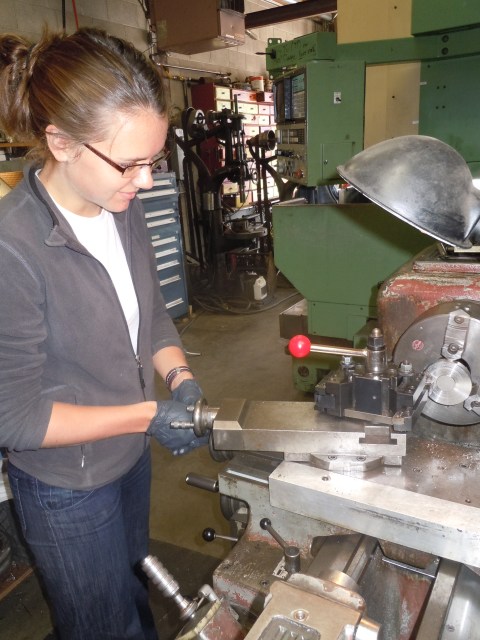
Dr. Cech explains this exact phenomenon, in sociology language:
“Interest itself, the way we learn what we should focus on, comes from experiences since birth that are often gendered. Subtle signs in teaching, parenting, media, or interactions with our peers all lead to cues about what women are supposed to like, and men are supposed to like. So even legitimate self-expression – interests, desires, etc. – can be informed by social processes.”
This leads nicely into a discussion of her 2011 study, “Navigating the Heteronormativity of Engineering: The Experiences of Lesbian, Gay, and Bisexual Students,” co-authored by Tom Waidzunas (Temple University) and published in Engineering Studies. As a brief summary, she found that within the dominantly heteronormative culture of engineering, there are many prejudices against LGB students that may hurt their success in the field. No surprise there. But the interesting part is that, in contrast with other minority identities, like race, queer people often have a certain amount of control over their visibility.
“Queer students are often out to some friends but not others, so there’s this dynamic of information control, which brings with it concerns about compartmentalizing. They have their personal life versus school life, and they have to manage how to keep them separate. These boundaries, and the mental calculus involved, aren’t required in the same way with other dimensions of inequality.”
This is probably something that many of us have experienced, at one point or another, either personally or by proxy. Whether for a week or for 10 years, there is a span of time in the coming out process where we have to juggle who knows and who doesn’t know; how much to share at any given time; who is within the trusted, sacred circle and who is not. And we all know that this is not comfortable. But the difference here is that it’s the academic institution and all the latent anti-gay prejudices that ferment in its silence that creates the need for this juggling.
For instance, Jessie is a 20-year-old mechanical engineer who writes a blog called Musings of a Lesbian Engineer, to let off some of the steam of being closeted at school. (She let me use her real name, but on her blog she goes by Jane Doe.) I found her blog during my research and asked her for her personal insights, and much of what she said supported Cech’s conclusions. “As for who I am currently out to, I can count it on my hand…Namely my ex, and 5 of my closest friends from home. I base this on how much I trust a person, I also tend to avoid coming out if I worry about a backlash or negative reaction. I am not out to anyone in the engineering department at my school, my roommate may have guessed by now that I am gay, but I am not certain.”
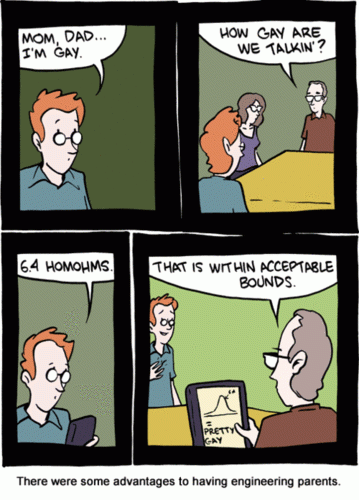
Via fanpop.com
So students generally employ a combination of three strategies: passing (literally pretending to be straight and keeping their work and social lives completely distinct), covering (not necessarily pretending to be straight, but downplaying signifiers of gayness and gay culture around straight peers), and overachieving (making themselves indispensable to others, almost to make up for being gay). As you could probably predict, the results of Cech and Waidzunas’ study indicated that the constant navigating of these options adds a significant strain on these students’ energy and abilities, and often leads to a feeling of isolation within a hostile environment. Gay students might not even know about one another. Jessie agrees, “I’ve actually done the math and considering engineering is 85% men and 15% women, then there are 8.5 gay men and 1.5 lesbian women in 100 engineers. If they are anything like me I wouldn’t have a clue as to who was gay or straight.”
Interestingly, the coming out (or being out) experiences for these 8.5 gay men might differ significantly from those of the 1.5 lesbian women. Cech found that lesbians were often more likely to be accepted because the masculinity associated with the stereotypical projection of lesbians fits better with the image of typical engineers.
“This study seemed to suggest that gay men in particular felt their competence and qualification questioned, and had to push extra hard to seem qualified. In contrast, lesbian women were often given more credit than straight women; masculinity and comfort with machinery that are part of the stereotypical production of lesbians may give them some kind of credibility. Of course, lesbian women still very much have to deal with the gender dimension of inequality in engineering, but as compared to straight women, lesbians’ competence seemed more accepted. And the whole reason this dichotomy exists is because of the devaluing of the feminine in engineering.”
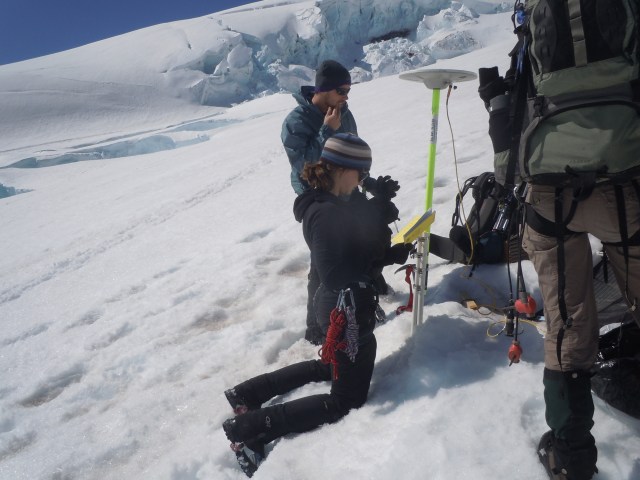
Maybe most important, though, is the “technical/social dualism,” that keeps us from discussing these inequalities and prejudices. We’ve discussed this idea before, that in the sciences, technical activities are the only ones valued. There is no space for subjects that could be classified as social: like talking about gay rights, or women’s rights, or social justice and inequalities. Of course, this is a false differentiation, because there is really no way to entirely separate the two, and anyone who’s worked on a team project knows that even in engineering, social dynamics are just as important as technical abilities. The devaluing of “social” topics really just serves to silence important conversations about inequalities.
This is a hard question, because you could also argue that it’s preferable to keep personal and professional lives separate. But, when it comes to the erasure and silencing of core pillars of our personal identities, the dualism must break. Jessie told me, “We don’t talk about the social problems of today, we never really talk politics. Some of my friends at school do seem to be accepting of gay[s] and lesbians. I just am horrible in social situations, and have no clue on the social protocol of coming out; there is no manual for it.” And this is a perfect example of why keeping silent on issues of LGBTQ acceptance is not enough. There is no social protocol, because coming out feels inappropriate in a science setting. We don’t create accepted social scaffolding around taboo interactions, and therefore we have no structure with which to discuss homosexuality. Jessie’s straight friends never needed to come out definitively, with or without a manual, and I’m pretty sure they do not spend time writing a blog to let off the steam of being straight in a heteronormative world either.
This is why, as Dr. Cech says:
“Perhaps the most important thing to hope for is the opening of dialogue on topics of inequality. I think it’s the most important cultural sticking point in the way of having systemic change that allows for inclusiveness. Conversations about equality and social justice are seen as tangential to the “real” work that is supposed to be done, like the equations on the board and the experiments in the lab. I’ve called it the idea of depoliticization: the idea that the removal of these social and political questions is good and even necessary for engineering, where in reality, decontextualizing everything could be quite damaging.”
“But if dialogue could be more open, more people can be on board to thinking about changes. There’s often talk about ‘we need this and that initiative, this and that change.’ But many people in science and engineering are not there yet. First we need to convince people that there’s a discussion worth having here. It deserves a place at the table just like equations on the board do.”
And therein lies one of the most important values of Cech’s research: it’s a first step towards breaking down this technical/social barrier. Her studies connect important facts about LGBT rights to the supposedly neutral and disconnected world of engineering and science, and provide a starting ground for discussion where there was none before. Because what these LGB students experience is not just restricted to engineering school. At some point in life, almost all of us will encounter (or already have encountered) a social situation in which queerness is not welcome, and we all have some experience with the ideas of passing, minimizing, or overachieving to compensate. It’s not just science where femininity is devalued, but in countless lurking cultural microcosms. And it is a constant truth that having to distance yourself from any important part of your identity leads to feelings of isolation and unhappiness. Within engineering fields and without, these things happen, and the only way to improve the situation is to talk about it.
“What I’d like to see is that the person who has been in a lab for 25 years can go and have a conversation in the hallways about LGBT equality issues with a colleague and no one thinks it’s strange,” Cech said. “We need to open a cultural space for that. Without that space, it’s just people like us pushing from the outside. Real change has to come from both, the outside and the inside.”



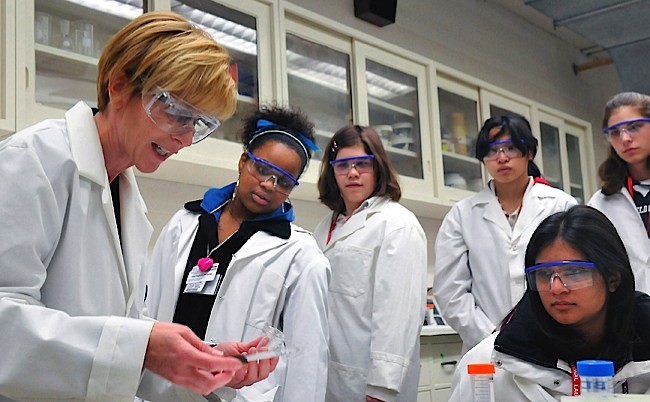




Comments
Ahhh, I’ve never posted here before but THIS. This is so good and so relevant to my life right now. Just started grad school and after having spent the past two years in NYC and the ones before that at the liberalist of liberal arts colleges, I had nearly forgotten how hard these dynamics can be to navigate, especially in the scientific community.
Thank you, thank you, thank you for this! As a queer woman in mechanical engineering, I can’t tell you how lonely it can feel.
My year at university was literally 98% male. You spend 40 hours a week in a classroom with 147 men (148 if you count the prof) and 2 other women, for 4 years of your life. My friends (all male) spent those 4 years complaining about how they could never meet women. Now imagine how I felt… the two other girls in my year were straight.
And now I am working as a mechanical engineer. Trust me, the alienation does not get much better. I spend my entire working day surrounded by men.
I compartmentalized in university, and still do so to an extent. For me, part of that had to do with the fact that I want to push forward the visibility of women in engineering. I know that I am more likely to be dismissed as a queer, so I unfortunately try to keep that aspect of myself quiet. I don’t want people thinking that I went into engineering because I’m “more like a man than a straight woman” (quote from my Mom). I really want to advance women in engineering, and sometimes I feel that that is easier when I am in the closet. Sad but true.
Anyway, I just want to thank you for this, because it makes me feel less alone fighting the engineering gender war. There are other women out there like me, who know that we belong here, and that we should be making up 50% of all classes, not 2%.
Queer girl in Mechanical engineering? I thought I was the only one! Yaaaayyy!!!!!
While my year was slightly better (6 women out of approx. 45 MechE students total, so %13) in terms of demographics, I too felt very alone. I’m really glad that this article was written, because here is written proof I’m not the only gay scientist/engineer. Not numerical proof via statistics, but actual living people.
I also run into some of the issues shown in this article (and EngGirl’s comment) in my leisure activities as well. I am a huge geek/nerd -by huge I don’t just mean playing videogames and whatnot. I go to Magic: The Gathering (MTG) tournaments (Magic the Gathering was the first collectible card game, it is still played internationally today).
There is nothing like going to a MTG tournament with 128 players knowing: 1) I am almost definitely the only female participating 2) I’m probably the only LGBT person there 3) I am absolutely the only lesbian in attendance.
This article documents one of the main reasons why I am going to A-Camp. My career and my passions are massively dominated by straight men. I want one weekend in which being a lesbian/queer female is not just the norm, but celebrated.
First of all, I love this column, because it is easy to feel like science life and personal/social activist life are completely separate!I often run into problems talking about being LGBT/feminist in science settings and also talking about science in LGBT/feminist settings.
I’m in biology/chemistry, and I love it, but I’m also an artist and a women’s and gender studies minor, and it can be really hard to reconcile those. For me, I overlap the skills I use in all three–they aren’t necessarily separate–but many people see them as conflicting.
Okay, if I continue this thought, it’s going to be the longest comment ever, so I’m just going to blog about it. :P
kisforkiah.wordpress.com
I’m not an engineering student but I could definitely relate to some things in the study you linked to. I hear so many more anti-gay terms in my science classes than I ever do in my liberal arts classes. I guess they are more free to talk about LGBT issues there.
this is incredible. thank you so much. i can’t wait for more columns.
This continues to be my favorite thing.
This is really making me come to grips with my humanities privilege – I not only find it easy to be out in my academic work but doing the kind of work I (hope to) is really important to how I see myself as a queer person, I can’t imagine academia pressuring me to stay in the closet.
YES! I’m currently woking on a nursing degree after dropping my studies in literature and WGS, which I did because I felt that there needed to be more medical practitioners who were operating with a social lens on.
Since starting this path I’ve discovered that I LOVE science, and I am actually good at math. Everything thus far has totally confirmed my suspicions that the medical field desperately needs to understand how to better handle a wide swath of trans* issues, STIs including HIV, coronary disease/type 2 diabetes and other conditions commonly associated with weight/diet/lifestyle, people in low income brackets, young women, pregnant women, sex workers… the list goes on forever, yet it is almost never appropriate to bring these concerns up in a classroom.
Once I complete this degree I fully intend to continue my studies in biology, particularly the fields that are handed down to students/workers in health professions, to see if there isn’t anything I can do about the problem.
This is so interesting, thanks!
Thanks for this.
The school level gender gap thing is really interesting for me to observe, as someone who spent 11 years in all-girls schools in Malaysia. We were EXPECTED to take on Science subjects because that’s what you do to be successful: study Biology/Physics/Chemistry/Additional Maths, get straight As, be a doctor (maybe an engineer or lawyer or account. but top priority doctor), support your family. There wasn’t this thing about “women can’t do science”, but not because my school was particularly feminist – it was the expectation of all Malaysian students.
Humanities was considered as only valid for “underachieving” students. I caused a fracas in my school when I opted out of the Science stream despite having top grades and took Malay Literature instead, placing me in the class with people who failed their exams. (I wanted to do English Lit but my school didn’t offer it, bah.) My choice of literature over science wasn’t out of any gendered expectation – I also wanted to be a Capital W- Writer and was more interested in that then pursuing a science career. I was pretty good with math and science, but found the classes frankly quite boring. (That’s probably more a reflection of the Malaysian education system though; I imagine that if I was educated elsewhere I would probably find science and math interesting enough to consider studying it further.) No one wanted anybody to take up the humanities – it wasn’t just a gender thing.
At the same time, it seems that when you finally do get into higher ed or beyond, the gender discrimination kicks in. I can’t speak for what happens in Malaysian higher education, since I went into media and creative industries, and only spent a year and a half in Malaysian colleges before moving overseas. However, I can see that there is a huge stigma against women wanting to pursue some sort of scientific or mathematical pursuit. Yesterday there was this article about Rose, the only female finalist in a competition to send a Malaysian to space training camp in Florida. She was getting a lot of misogynistic trolling from people claiming that women shouldn’t belong in space programs. (The Internets did take over though and made her first place in votes – go vote for her!):
http://www.themalaysianinsider.com/malaysia/article/look-whos-smiling-now-trolls-target-roshini-pulling-in-the-votes
Ah so happy this column exists!
Y’all should also totally check out the relevant site Gap Junction Science which is about feminist science and totally cool. ( http://www.gapjunctionscience.org )
Interesting article – and while I’m no engineer, I’m a biologist, and can relate to many of the points you mentioned above. Of course, the gender difference isn’t even close to being as disparate as it is in the engineering field; in the US, it seemed as though I had an equal number of male and female classmates, while in Germany, I think the scales tipped to the ladies – meaning there tended to be slightly more women than men in my classes (although I later found out that most of the women were actually enrolled for the master’s in biology teaching, so…).
Anyway, I guess I do what you call “covering” while working with my science colleagues. My sexual orientation doesn’t seem relevant to my work (really, between running a Western blot or dissecting tadpoles/fishes, there’s hardly any time to come out), so I just… don’t talk about it.
Thinking back to undergrad, though, I think most of my friends outside the science department knew I was gay because I never bothered to hide it – I’m pretty sure 90% of the Greek community knew. But my classmates in the science department, unless they were also Greek-affiliated, usually had no clue. I know this because the few times I did come out to people there, they were pretty surprised and some even came to check with me (or my friends) if I was joking about being gay.
I didn’t intend for this to turn into an essay. I’m just trying to say in a really roundabout way that something does have to change so that coming out stops feeling inappropriate in a science setting.
This is such a great article! I love seeing this type of content on AS. I’m not into science but I’m an econ and math double major (and hopeful grad student in econ), so all my courses are pretty heavily male, and I’m sure most of my coworkers will be too. It’s nice to know I’m not the only lesbian who doesn’t get to major in women’s studies or work at the vegan co-op and be surrounded by queers for a living.
Thanks for a second great entry in this series!
Maybe this is just me, but isn’t it not just *other people* who hold the view that sexuality and gender and whatnot are weird personal things that scientists shouldn’t care about, but you can internalize it too? And you think that since this stuff is weird and you shouldn’t care about it let alone do something about it and be a weird queer person, because you’re a scientist and don’t care about that kind of stuff because scientists don’t care about that kind of stuff, you decide to not think about it and just do science all the time because if you don’t have a personal life then you never have to think about this stuff? But it turns out that actually this strategy doesn’t work very well and then you find yourself having this huge personal crisis when really you’re supposed to be writing your dissertation and so you write rambly comments on the Internet because you don’t really know what else to do?
Or, as I say, maybe that’s just me.
This column is for sure my favorite now. Also I commiserate with you on the all male field team. I always feel like I have to be at 120% just for them to think I am on their level. I have to be the fastest hiker, I have to be the least tired, I can never ever complain, I can never mess up any measurement ever because if I do it is obviously because I am a woman not because I am a human being that fucks shit up sometimes. The worst part is the part of my brain telling me the same thing.
I’m just going to leave this here for anyone who’s really interested in this kind of issue:
The super cool Rebecca Jordan-Young wrote a book fairly recently called “Brain Storm: The Flaws in the Science of Sex Differences.” It’s exactly this kind of thing – from what I’ve gathered so far it is rigorously scientific but simultaneously preforming as well as taking into consideration political and social critique.
http://www.amazon.com/Brain-Storm-Flaws-Science-Differences/dp/0674063511
I love this so much. You guys basically took the feelings out of my head and made them pretty words. It feels good not to feel alone, too!
Thanks and I look forward to the next one!
I actually went to a gender-balanced engineering school (Franklin W. Olin College of Engineering) and it made a HUGE difference. For example, we were able to actually talk about gender in a constructive way for team projects. And bonus, I wasn’t the only lesbian or generally queer person there!
For the first semester design course, the faculty had noticed over the years that students tended to assign tasks along gender roles so that men would end up doing more machining and women would end up doing more project management activities. This type of segregation at such an early point in the engineering education concerned them so they started developing interventions. Last I heard, the most successful strategy was to clearly establish in the beginning of the course that it was supposed to be a learning experience. Therefore, every student had to choose some aspect that they felt unconfident about and make a goal to get better at that aspect. This explicitly forced students to not fall into gender roles.
Yay for social engineering.
Thanks for this article. I definitely identified as someone experienced in the sciences who left for some of these reasons to pursue other work. I did, however, want to challenge the writer on one statement and that is this one: “…the interesting part is that, in contrast with other minority identities, like race, queer people often have a certain amount of control over their visibility.” I think there’s an underlying and very dangerous assumption in that statement that queer people do not deal with other minority identities. Hello! Intersectionality, anyone? There are lots of queer folks of color and queer folks with other minority identities (visible and otherwise) in STEM fields (or being excluded from STEM field work) who deal with being “out” in addition to other forms of oppression. The “mental calculus” necessary for dealing with ANY type of oppression, visible or not, is taxing and oppressive.
I really appreciated this. I’m in biology, but my lab is LITERALLY the only place I’m not out. Even my grandma knows I date ladies sometimes. I told myself that I just didn’t want to talk about my personal life at work, but it’s soooo uncomfortable when my labmates are all married or engaged and talk about their signif others and I just sit there smiling. Yep, I’m just a single grad student…no social life here.
I guess I only sort of cover though. I have a rainbow pin on my backpack and a rainbow duct tape rose at my desk. They never ask about my life, so I just don’t tell them.
I went to undergrad for engineering and proceeded to be subtly removed from my study group when I came out my senior year. Loosing friends I had grown up with for the last four years was devastating, especially on top of hearing sexist comments like “who’d you blow to get that grade” on a nearly daily basis. After graduating, I needed some time to heal. That healing could not happen in my technical research position where I “covered” my queerness and gf of 3 years on a daily basis. I have spent the last 2 years working in higher education in pursuit of the knowledge/skills and direction to pursue graduate research focusing on making STEM higher education more inclusive. Thank you Dr. Cech for reinvigorating my pursuit.
Edit: and thank you Vivian for writing this article and providing this space for reflection/community.
Fantastic post with really emotional and enlightening content. Please keep it up.